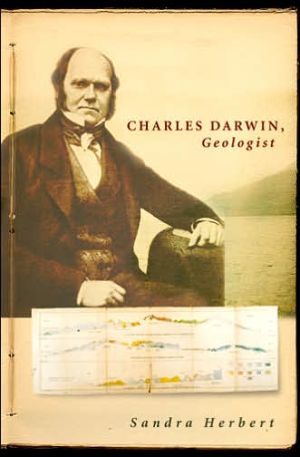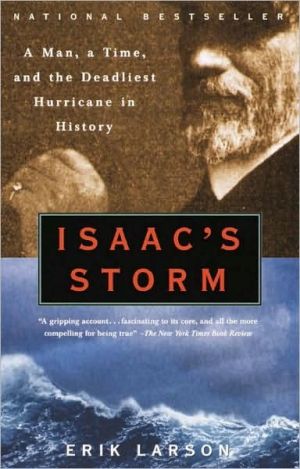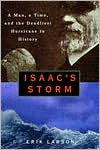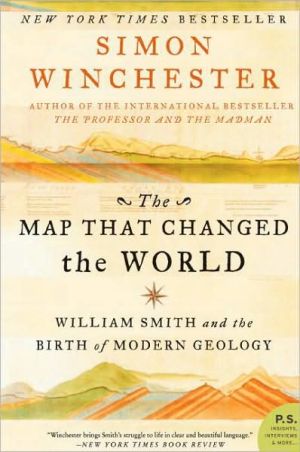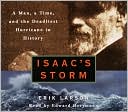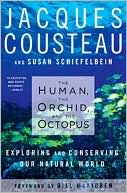Charles Darwin, Geologist
"Pleasure of imagination. . . . I a geologist have illdefined notion of land covered with ocean, former animals, slow force cracking surface &c truly poetical."-from Charles Darwin's Notebook M, 1838\ The early nineteenth century was a golden age for the study of geology. New discoveries in the field were greeted with the same enthusiasm reserved today for advances in the biomedical sciences. In her long-awaited account of Charles Darwin's intellectual development, Sandra Herbert focuses...
Search in google:
The early nineteenth century was a golden age for the study of geology. New discoveries in the field were greeted with the same enthusiasm reserved today for advances in the biomedical sciences. In her long-awaited account of Charles Darwin's intellectual development, Sandra Herbert focuses on his geological training, research, and thought, asking both how geology influenced Darwin and how Darwin influenced the science. Elegantly written, extensively illustrated, and informed by the author's prodigious research in Darwin's papers and in the nineteenth-century history of earth sciences, Charles Darwin, Geologist provides a fresh perspective on the life and accomplishments of this exemplary thinker.As Herbert reveals, Darwin's great ambition as a young scientist—one he only partially realized—was to create a 'simple' geology based on movements of the earth's crust. (Only one part of his scheme has survived in close to the form in which he imagined it: a theory explaining the structure and distribution of coral reefs.) Darwin collected geological specimens and took extensive notes on geology during all of his travels. His grand adventure as a geologist took place during the circumnavigation of the earth by H.M.S. Beagle (1831-1836)—the same voyage that informed his magnum opus, On the Origin of Species.Upon his return to England it was his geological findings that first excited scientific and public opinion. Geologists, including Darwin's former teachers, proved a receptive audience, the British government sponsored publication of his research, and the general public welcomed his discoveries about the earth's crust. Because of ill health, Darwin's years asa geological traveler ended much too soon: his last major geological fieldwork took place in Wales when he was only thirty-three. However, the experience had been transformative: the methods and hypotheses of Victorian-era geology, Herbert suggests, profoundly shaped Darwin's mind and his scientific methods as he worked toward a full-blown understanding of evolution and natural selection. Library Journal Most people associate Charles Darwin solely with evolution. Yet Darwin worked in a variety of other scientific areas and considered himself first and foremost a geologist. In 1859, in fact, the Geological Society of London awarded him its highest honor, the Wollaston Medal, for his contributions to the field; eight months later, The Origin of Species was published, and Darwin's work in geology was relegated to the background. Herbert (history, Univ. of Maryland Baltimore Cty.; ed., The Red Notebook of Charles Darwin) documents Darwin's interest in geology from age nine or ten, when he first began collecting stones. With the defeat of Napoleon in 1815, Britain sealed its claim as the most powerful nation, particularly on the sea. This newfound stature, along with his family's wealth, enabled Darwin to pursue a life of scientific inquiry and embark on expeditions that provided him with the ingredients necessary to formulate his theories. Herbert covers Darwin's voyages thoroughly and includes an overview of other geological scientists from the era. For broadening our understanding of Darwin, this book is highly recommended for all larger academic libraries and specialized science collections.-Gloria Maxwell, Penn Valley Community Coll. Lib., Kansas City, MO Copyright 2005 Reed Business Information.
1"I a geologist"12Geology483Specimens974The romantic thread1295A prospective author1406Negotiating genesis and geology1797Toward simplicity1978Simplicity challenged2459Geology and species29510Geology and the Origin of species319
\ From the Publisher"Few are more eminently qualified to write this work than the historian Sandra Herbert. . . . Her well-written book examines the primacy of Darwin's geologic training and research in the formulation of both the 'species question' and the concept of organic evolution by natural selection. . . . This book broadens prior understanding of how Darwin's geologic ruminations informed his thinking about the transmutation of species. Highly recommended."-Choice, January 2006\ "Herbert makes a strong case for reading deeper into the ways Darwin understood changes in time and changes in space. Rocks rise and sink; species appear and go extinct. What happens on one part of the globe is connected to another. Gradually, over long periods, small changes can accumulate into great effects. Continents will emerge, as do new animals and plants. For Herbert, what geology gave to Darwin was a gradualist's sense of time and a global perspective. For historians, what Herbert has presented is a broader view of the science of Charles Darwin."-Paul Lucier, American Scientist, January-February 2006\ \ \ \ \ \ Library JournalMost people associate Charles Darwin solely with evolution. Yet Darwin worked in a variety of other scientific areas and considered himself first and foremost a geologist. In 1859, in fact, the Geological Society of London awarded him its highest honor, the Wollaston Medal, for his contributions to the field; eight months later, The Origin of Species was published, and Darwin's work in geology was relegated to the background. Herbert (history, Univ. of Maryland Baltimore Cty.; ed., The Red Notebook of Charles Darwin) documents Darwin's interest in geology from age nine or ten, when he first began collecting stones. With the defeat of Napoleon in 1815, Britain sealed its claim as the most powerful nation, particularly on the sea. This newfound stature, along with his family's wealth, enabled Darwin to pursue a life of scientific inquiry and embark on expeditions that provided him with the ingredients necessary to formulate his theories. Herbert covers Darwin's voyages thoroughly and includes an overview of other geological scientists from the era. For broadening our understanding of Darwin, this book is highly recommended for all larger academic libraries and specialized science collections.-Gloria Maxwell, Penn Valley Community Coll. Lib., Kansas City, MO Copyright 2005 Reed Business Information.\ \
